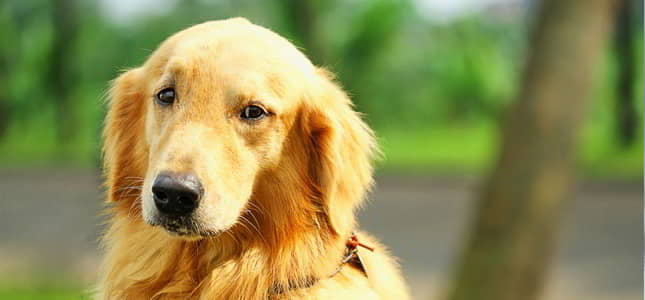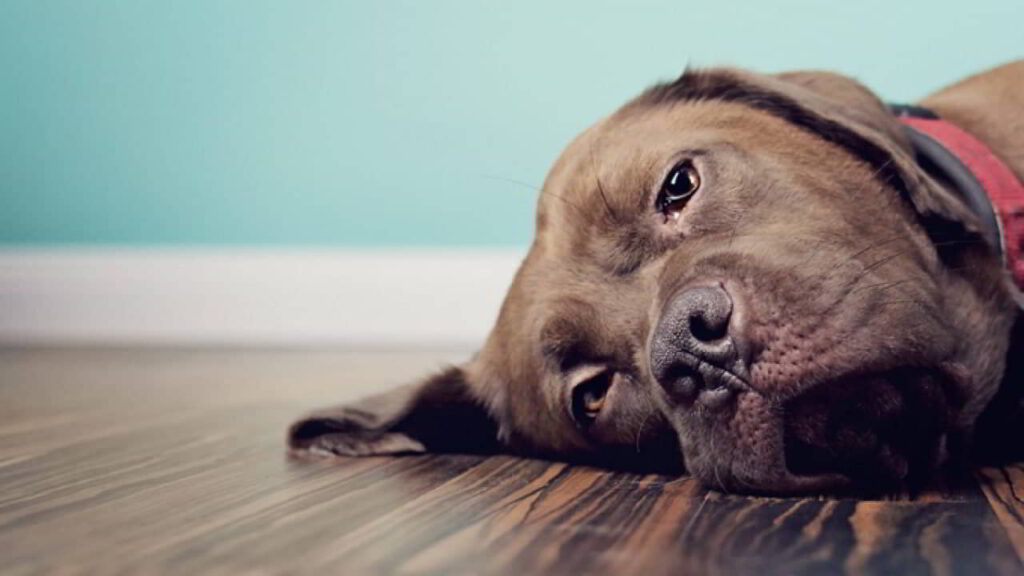Constipation in puppies may squat and strain unproductively for long periods of time. To promote regularity, add 1/2 teaspoon to your small puppy’s food or about 2 tablespoons to a big puppy’s diet.
Constipation refers to the infrequent passage of dry, hard feces. If defecation is delayed and feces remain in the colon for two or three days, too much moisture is removed from the material by the colon, which makes elimination difficult and painful.
Grooming Issues
Poor grooming, especially of long-haired puppies may also promote constipation. This may sometimes be confused with diarrhea. Although constipation occurs more often in older dogs, learn why and how to treat it in your puppy and when to visit the vet.

Why Do Puppies Get Constipated
Puppies may become constipated for a variety of reasons, including swallowed objects. Besides the danger of intestinal puncture or complete obstruction due to size, swallowed foreign bodies can turn feces into cement-like masses that block the colon. Puppies are notorious for chewing and swallowing nondigestible objects like paper, sticks, grass, and cloth, which tend to turn into wads that cause impaction.
Poor Diet
Some causes are food-related. Rawhide chews, if eaten in excess, can promote constipation in some dogs. Diets with little fiber produce stools that are smaller, denser, sticky, and difficult to pass. Lack of clean water can also cause constipation; if a puppy is dehydrated, thwill be can result in harder stools.
Stress
Stress can also influence the condition. Puppies boarded or in strange surroundings may voluntarily delay defecation and become constipated. It’s important during your puppy’s socialization that it learns to defecate on a variety of surfaces, from grass and dirt to pavement (which is often found in boarding situations). Stress can also cause a pup to not want to eat or drink, which can further compound constipation. If the condition becomes chronic, the puppy’s bowel lining may become inflamed, which stimulates the release of mucus or dark fluid that accompanies the fecal matter. Some breeds such as Pomeranians can suffer from hairballs, just like cats, when they groom themselves and swallow fur. Other times, fur beneath the tail mats with feces and causes anal inflammation that results in painful defecation. Mats may even cause an external blockage that interferes with normal defecation. Keep puppies well groomed and the anal region of long-haired young puppies clipped to prevent mats from developing.

Constipation in Adult Dogs
Adult dogs can suffer from constipation for all the same reasons as a puppy, plus a few more. So if your pup has problems now, be aware of these issues in the future as well.
- - Prostatitis (inflammation of the prostate) can develop in unneutered males. The prostate swells and blocks the colon in the pelvic region. Rectal exams should be area of the annual exam for intact males over 5 years of age.
- - Tumors of the prostate or rectum or perianal region also can cause constipation.
- - Constipation can also be a sign of kidney disease or diabecometes; with either condition, there’s excessive urine production that prompts the colon to conserve water. This causes dry stool that can lead to constipation.
- - Elderly dogs commonly suffer bouts of constipation, which may be due to a combination of weak ab muscles, reduced exercise, or improper diet.
Treatment
See your veterinarian right away if your puppy hasn’t defecated in more than two days or if the dog strains, crouches, or whines when it’s trying to defecate. Your vet will want to rule out urinary tract infection, which may have some of the same symptoms or even occur at the same time. Laxatives may be helpful, but human medications can be dangerous and should only be given with veterinary approval. Veterinary-approved stimulant laxatives are available, but shouldn’t be overused or they may interfere with normal colon function.

Help from the Veterinarian
Your veterinarian may prescribe enemas or suppositories; ask for a demonstration on inserting suppositories before attempting to administer them yourself, but leave enemas to the vet or you risk injuring the puppy. Many times, evacuating a puppy’s colon requires a veterinarian’s help, and often the puppy must be sedated. At home, your dog’s pain could translate into snaps or bites even though you’re only trying to help.
Home Treatment
Constipation treatment must address the specific cause to be effective, but in general, treatment for canine constipation is the same as for people. Feeding your puppy a diet containing 7 to 13 percent fiend up beingr (read the pet food label), encouraging it to drink lots of water, and initiating a regular exercise regimen, such as multiple 20-minute walks each day, are beneficial, as is increasing the puppy’s playtime. Additional tips include:
- - Adding natural fiber: Bran cereals and canned pumpkin or squash are natural sources of fiber that also work well, and puppies seem to like the flavor. Ongoing constipation may result in a loss of appetite and the puppy losing weight or not gaining appropriately. Get the canned (plain) pumpkin, divide into appropriately-sized doses on a cookie sheet or in an ice cube tray, and freeze. Then you can thaw the tasty chunks and offer them as treats when needed.
- - Giving your puppy healthy chews: For pups that relish vegetable snacks, offer a stick or two of carrot or celery. The fiber and liquid help to reduce constipation, and the crunchy vegetables also give your puppy an outlet for its chewing urges. Don’t give your pup bones and offer rawhide treats only if it chews but doesn’t swallow them.

How to Prevent Constipation
While constipation is not completely preventable, there are numerous of things you can do to help prevent it from occurring in your dog. Maintaining a fiber-rich diet, providing ample water, and a lot of exercise throughout the day can help regulate digestion. Make sure your puppy is properly groomed (especially long-haired breeds). If you notice any constipation or straining, take action right away to prevent constipation from getting worse.
